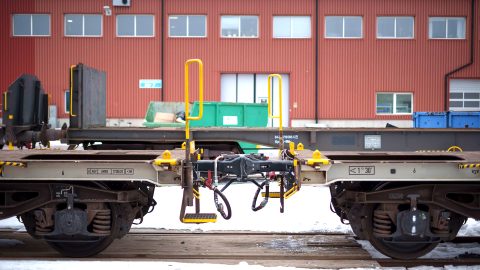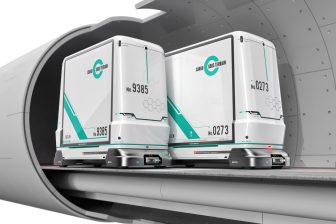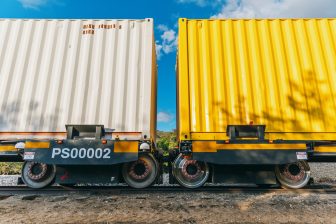
Knorr-Bremse begins tests for DAC for freight train in Sweden
Knorr-Bremse, a German manufacturer of braking systems, is testing its Digital Automatic Coupler (DAC) in real-world conditions on a Swedish freight train. As the company claimed, Knorr-Bremse has been confirmed as an authorised DAC manufacturer by the European DAC Delivery Programme at the end of 2022.
Six cars of a freight train, which will be operated by Trafikverket CFL, will be equipped with DAC for tests, with the intention of increasing to 20 in a second phase. As Knorr-Bremse pointed out, the train will travel on the Swedish rail network until 2025, covering roughly 100,000 kilometres every year. “The tests will be carried out under the aegis of the EU’s research and innovation program, Europe’s Rail Joint Undertaking”, the company added.
Initially, the DAC installed will have an Automation Level 2, with higher levels of automation to be implemented at a later stage. The tests carried out by Knorr-Bremse will also include ice tests in the winter. This, according to Knorr-Bremse, “is regarded as the ideal durability test for the coupling system, which must meet the highest standards of resilience”.
DAC deployment in EU: is it a rushed decision?
The EU’s plan to implement DAC on the entire freight fleet running in the Union by 2030 is receiving criticism concerning insufficient testing and financial issues. Railway associations from various European countries, including the Polish ZNPK and the Czech Zesnad, are pointing out that the technology needs more time to be tested. ZNPK is asking for more tests that would take into account different types of wagons, whereas Zesnad highlighted the importance of regulations and funds from the EU. Implementing DAC can become quite expensive, with estimates for equipping all the rail freight fleet in the Union set around 20 billion euros.
Also read:




